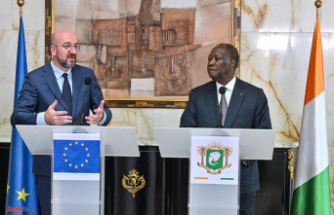Unlike in business, temporary positions are widespread in higher education. The so-called Mittelbau is particularly affected.
Erfurt (dpa/th) - At Thuringia's universities, including the Jena University Hospital, 76.3 percent of the scientific and artistic staff work on fixed-term contracts. According to the Ministry of Science, only 23.7 percent were in permanent employment as of December 1, 2021. According to the information, professors for whom there is usually no time limit are not included in the figures.
"Unlike in companies, science thrives on giving young scientists the opportunity to develop further at the university," said Science Minister Wolfgang Tiefensee (SPD), explaining the practice of fixed-term contracts. To this end, it is essential to provide jobs that are not permanently occupied in addition to the permanent employment of employees.
"Nevertheless, planning security is very important, especially for mid-level academics at universities," says Tiefensee. In order to improve this, according to him, permanent contracts should generally be concluded for permanent tasks. "To this end, the Thuringian Ministry of Science is in constant contact with the Thuringian universities."
According to the ministry, the temporary employment results from the personal qualification of scientists as part of a university career and from third-party funded projects. If someone is temporarily employed as a research assistant for the purpose of doing a doctorate, it is important to give him or her enough time to achieve the qualification goal. In the case of third-party funded employees, it is important to link the contract term to the term of the third-party funded project.
A change in practice is not possible at the state level. The Science Time Contract Act is a federal law. One cannot adopt a draft of a "Science Delimitation Act" submitted by the Education and Science Union, but it contains many basic elements such as permanent positions for permanent tasks, minimum standards for temporary contracts or sharpening of the qualification goals, which are being discussed in the conference of state ministers of education.












